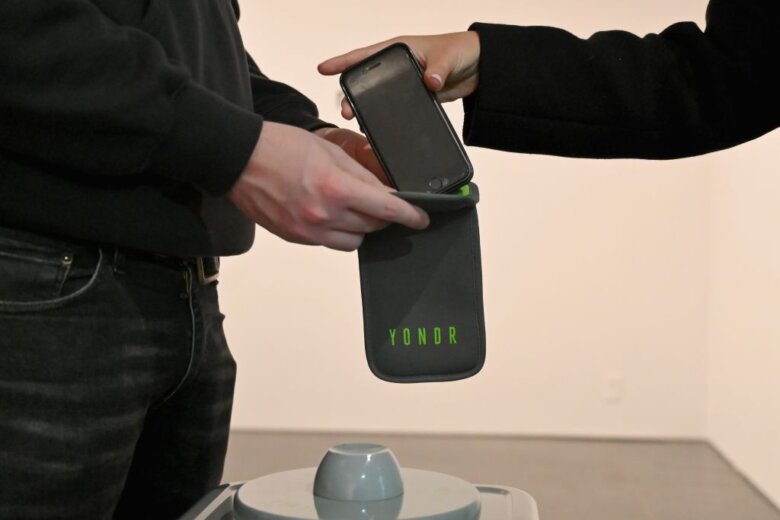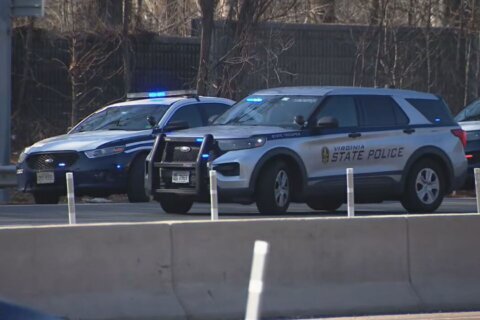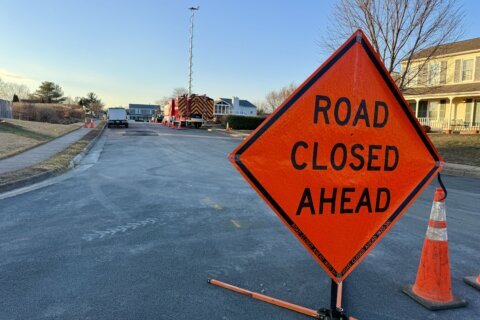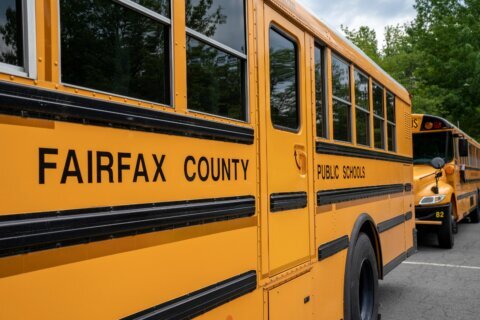From vaping, the cost of school supplies to cellphone policies, the WTOP team is studying up on hot-button topics in education across the D.C. region. Follow on air and online in our series “WTOP Goes Back to School” this August and September.
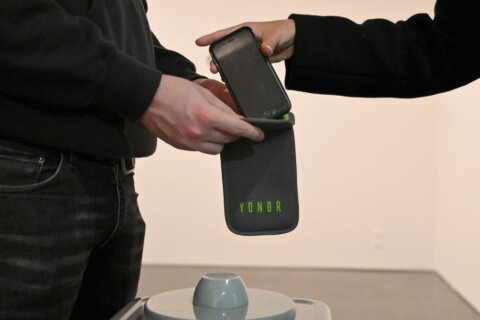
Some Fairfax County, Virginia, middle schoolers will have to put their cellphones in special pouches next year as part of a pilot program aimed at cracking down on students’ phone use during the school day.
In May, the school board in the Northern Virginia district voted to require Superintendent Michelle Reid to create a pilot program for storing cellphones away during school hours. Now, the school division said it’s piloting the storage program at seven middle schools.
The program marks the county’s latest attempt to make sure students’ phones are away and aren’t distracting them during crucial instructional time.
School divisions across the D.C. region are figuring out ways to eliminate disruptions. Last month, Gov. Glenn Youngkin issued an executive order calling for cellphone-free education in Virginia’s public schools. The state’s Department of Education is creating a model policy for districts to follow.
Proponents of such policies said they’re important to make sure students remain on track academically. But critics worry they won’t be able to communicate with their students during the day, especially during emergencies.
“I’ve heard feedback from teachers, from parents and from kids that right now, up to this date, it’s kind of been the Wild West with the enforcement of cellphones,” said Fairfax County School Board Member Kyle McDaniel. “We can’t have that. We’ve got to have consistency in our schools.”
For middle schoolers in the county, the school system doesn’t allow use of cellphones at any point during the day.
But starting on the week of Sep. 2, students at certain middle schools will receive a Yondr pouch, which is magnetic and can only be unlocked at an unlocking station at the end of the day. Cellphones will be placed in the pouches, and the pouches will go in students’ backpacks.
Students attending schools participating in the pilot program will have to bring their pouch with them each day. Their phone will go into the pouch, and the pouch goes into a backpack, where it’ll stay until the school day ends. When a student is leaving, they’ll use a Yondr base to unlock the pouch and get their phone back.
Students who forget their pouch will have to leave their phone in the school’s front office. Teachers at the pilot schools will be told not to create lessons that require phones during class time.
Parents who need to reach their kids will have to contact the front office, according to the county’s website detailing the pilot program. Students who need access to their phone for a medical reason will continue to be able to use their devices.
Individual teachers won’t be able to unlock the pouches, but students who leave early will be able to unlock their pouch before they leave. If they’re returning, it’ll have to be locked again.
Leslie Houston, president of the Fairfax Education Association, said she understands why some parents may be critical of strict cellphone policies.
“As an educator, we have to have some kind of regulation that protects our students from distractions and also protects teachers from being targeted on social media. There’s so many things you can do with a cellphone,” Houston said.
David Walrod, president of the Fairfax County Federation of Teachers, said he attended an event where the pouches were used and recalled “it being a fairly quick, fairly efficient process.”
“One thing that I’m also going to be watching for is at the beginning of the day, are you able to handle this quickly?” Walrod said. “At the end of the day, are kids getting their phones, unlocking the pouch — is that a quick process? Or are you going to find that it takes a significant amount of time? Because if it takes a significant amount of time, is that going to affect buses?”
McDaniel, the school board member, said he’s pushing central office staff to consider adding at least one high school to the pilot. A school district spokesman said the pilot is only for the seven middle schools for now, and that elementary, high and nonparticipating middle schools will continue to follow cellphone rules detailed in the Student Rights and Responsibilities document.
For high schoolers, phones have to be put away except during lunch, in the hallway between classes or if it’s academically necessary.
“It actually seemed this past year that at a lot of our middle schools, that wasn’t where we were getting a lot of the worst complaints,” Walrod said. “It sounded like a lot of the issues were at the high schools, so I was surprised that they didn’t at least include some high schools in (the pilot program).”
The school board is expecting to get results from the pilot program this winter, and will then “be able to make a decision as to a more permanent, countywide plan to enforce the existing rules surrounding cellphones that we have,” McDaniel said.
The Fairfax County middle schools participating in the pilot are:
- Frost Middle School
- Irving Middle School
- Jackson Middle School
- Poe Middle School
- Robinson Middle School
- Thoreau Middle School
- Twain Middle School
Get breaking news and daily headlines delivered to your email inbox by signing up here.
© 2024 WTOP. All Rights Reserved. This website is not intended for users located within the European Economic Area.

